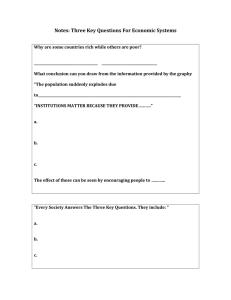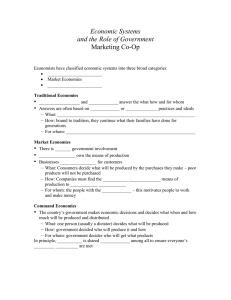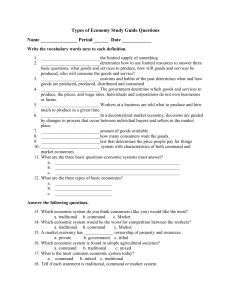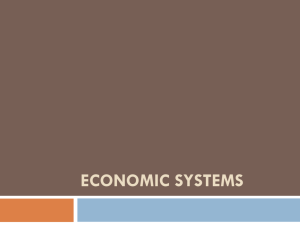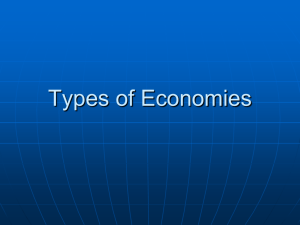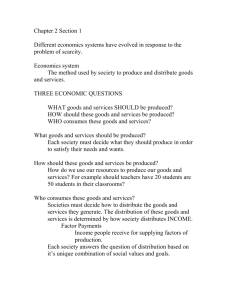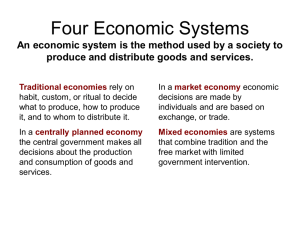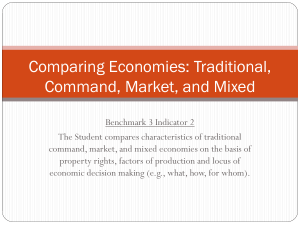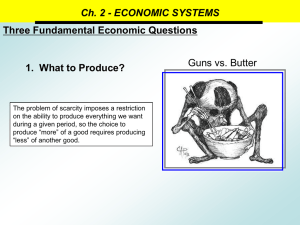BER, M3Ho1 - Economic Systems
advertisement
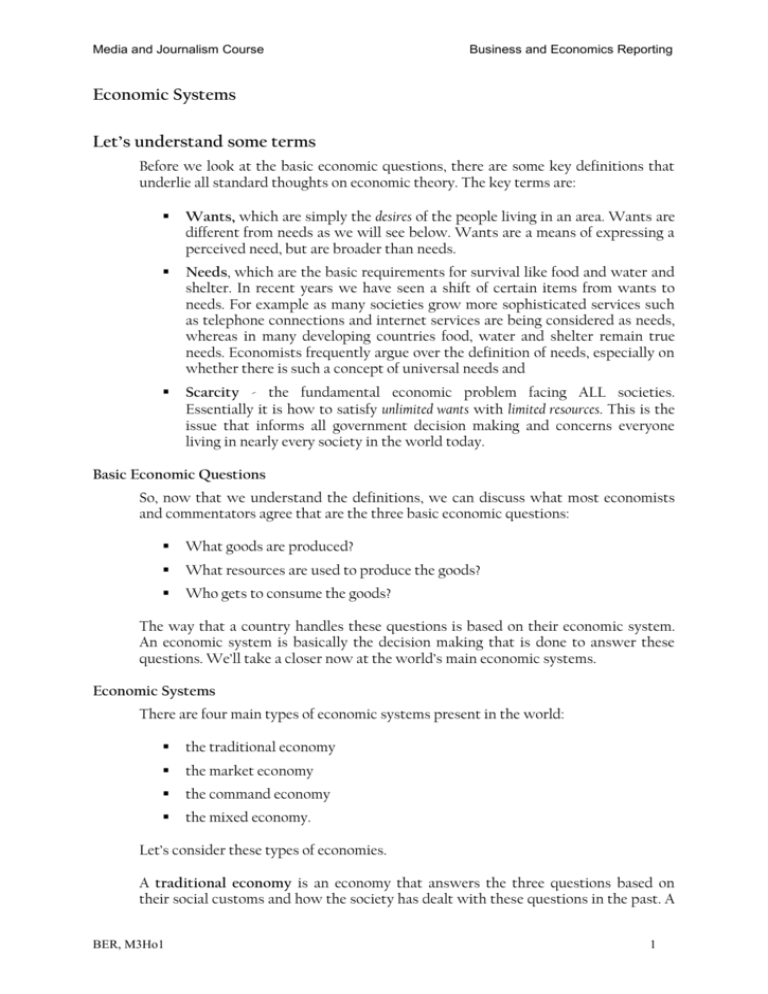
Media and Journalism Course Business and Economics Reporting Economic Systems Let’s understand some terms Before we look at the basic economic questions, there are some key definitions that underlie all standard thoughts on economic theory. The key terms are: Wants, which are simply the desires of the people living in an area. Wants are different from needs as we will see below. Wants are a means of expressing a perceived need, but are broader than needs. Needs, which are the basic requirements for survival like food and water and shelter. In recent years we have seen a shift of certain items from wants to needs. For example as many societies grow more sophisticated services such as telephone connections and internet services are being considered as needs, whereas in many developing countries food, water and shelter remain true needs. Economists frequently argue over the definition of needs, especially on whether there is such a concept of universal needs and Scarcity - the fundamental economic problem facing ALL societies. Essentially it is how to satisfy unlimited wants with limited resources. This is the issue that informs all government decision making and concerns everyone living in nearly every society in the world today. Basic Economic Questions So, now that we understand the definitions, we can discuss what most economists and commentators agree that are the three basic economic questions: What goods are produced? What resources are used to produce the goods? Who gets to consume the goods? The way that a country handles these questions is based on their economic system. An economic system is basically the decision making that is done to answer these questions. We’ll take a closer now at the world’s main economic systems. Economic Systems There are four main types of economic systems present in the world: the traditional economy the market economy the command economy the mixed economy. Let’s consider these types of economies. A traditional economy is an economy that answers the three questions based on their social customs and how the society has dealt with these questions in the past. A BER, M3Ho1 1 Media and Journalism Course Business and Economics Reporting country's customs can differ greatly to that of a neighboring country so traditional economies vary from one to another. A market economy is the type of economy that operates in most developed countries today and these questions are answered in the marketplace by the interaction of buyers and sellers. For example, the question of what to produce may be based on what trend is popular right now. The producer would create a product that they think would sell well to the public in hopes to make a profit. The question of how to produce is usually based on the producer's choice. They might decide to produce a product with more workers or they might decide to produce it more with sophisticated manufacturing plants and computers to save on labour costs. The question involving for whom to produce is based on the buyer who decides what they want or need and what price they are willing to pay for it. A market economy is good for motivating workers to work harder because they are only paid based on what they do. A worker can increase their income or profit by working harder and this chance to profit motivates them. A command economy is an economy where these questions are all answered by the government. Rather than giving individuals the chance to decide what they want or need, the government decides these questions for the country. This type of economy is difficult for the individual because it is impossible for the government to know exactly what is best for each and every citizen. Also, command economies don't help with their workers' motivation because everyone is given the same amount of goods and the same standard of living. A hard working citizen would not be given a chance to benefit from their extra work because they cannot increase their standard of living any greater than it currently is and they will make just as much as a person who exerts little or no effort. There are few command economies left in the world today, as communist and totalitarian governments which commonly commanded the economy of a country have declined in number. Cuba and North Korea remain examples of command economies. A mixed economy is an economic system that answers the three questions both in the marketplace and in the government. Many countries in the world have mixed economies – for example, where the government plays a role in the economy, a mixed economy usually involves producers working closely with the government so countries such as America are still essentially a market economy, even though there may be government intervention present. BER, M3Ho1 2
